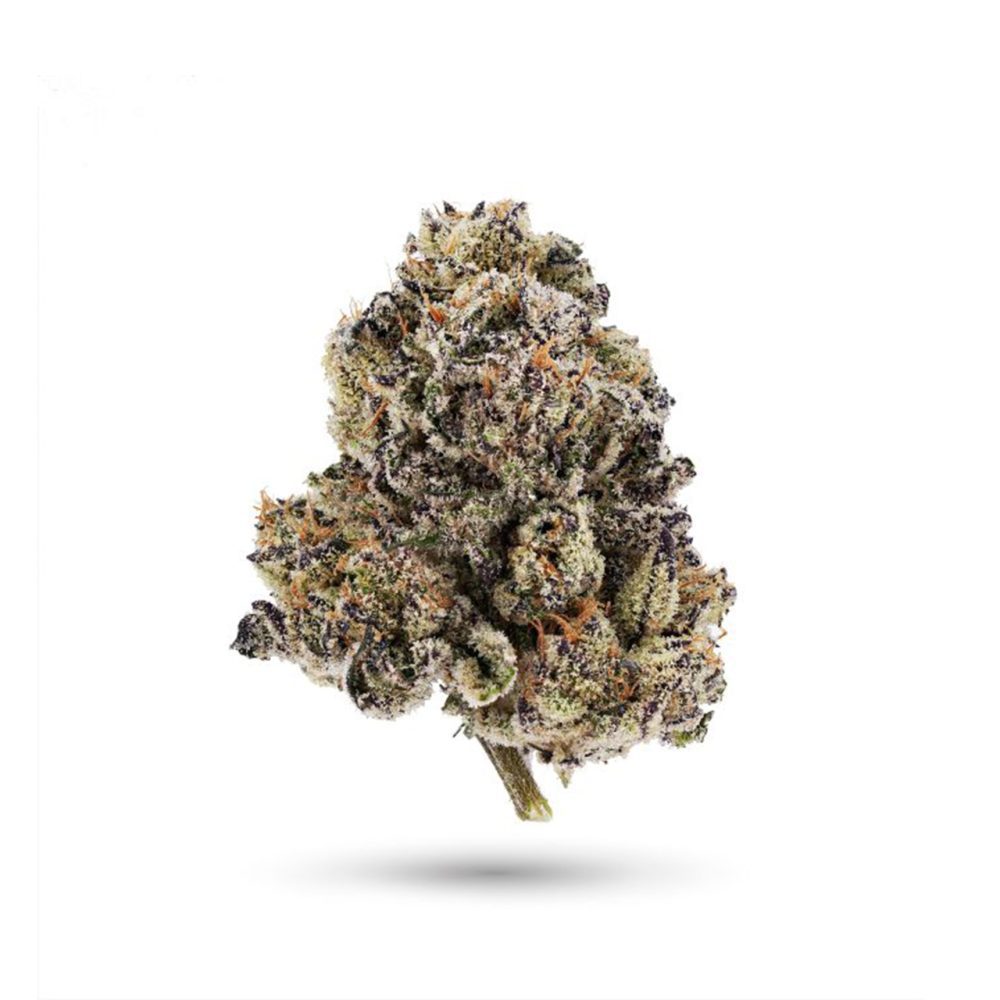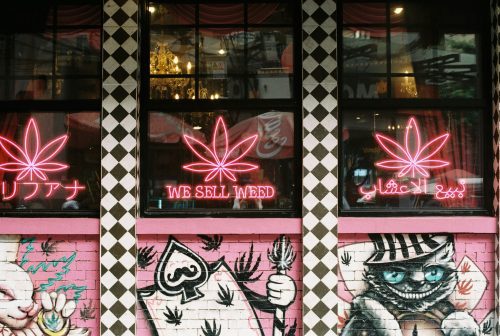As cannabis laws shift and evolve, a new compound has taken center stage in the hemp space: THCa. Often marketed as federally legal cannabis, THCa flower is sparking intense conversations about legality, quality, and the future of hemp-derived products. But what exactly is THCa? How do you know if it’s legit? And which states actually allow it?
In this guide, we break down everything you need to know about buying high-quality THCa flower, vapes, edibles, and drinks—from identifying premium Hemp THCA products to navigating tricky laws.
What is Hemp THCA Flower, and Why Is It Gaining Traction?
THCA, or Tetrahydrocannabinolic Acid, is the acidic precursor to Delta-9 THC, the well-known psychoactive compound in cannabis. In its raw form, THCA is non-intoxicating. However, when exposed to heat through a process called decarboxylation (like smoking, vaping, or cooking), THCA converts into Delta-9 THC, delivering the familiar euphoric effects associated with traditional marijuana.
The surge in THCA hemp flower’s popularity stems from a crucial legal distinction.
The 2018 Farm Bill federally legalized hemp, defining it as Cannabis sativa L. with a Delta-9 THC concentration of no more than 0.3% on a dry weight basis. Since THCA itself is not Delta-9 THC, hemp cultivators can grow strains naturally rich in THCA while remaining compliant with federal law, as long as the final Delta-9 THC content (before heating) stays below the 0.3% threshold.
This “hemp THCA loophole” has opened up a national market for products that, when heated, offer a very similar experience to traditional cannabis.
For consumers, this means access to a wider variety of cannabis experiences, often with more accessible pricing and convenient online purchasing options in many states where recreational marijuana remains illegal or highly regulated. It’s a game-changer for both recreational users seeking an alternative and medical patients looking for specific therapeutic benefits without navigating strict state-level cannabis programs.
The Rules and Laws: Navigating the Complexities
While federally legal under the 2018 Farm Bill, the legal landscape surrounding hemp THCA flower is far from uniform. This is where things get tricky, and why understanding the nuances is paramount.
Federal Law (2018 Farm Bill): As mentioned, the cornerstone of THCA’s legality is the 2018 Farm Bill, which defines hemp by its Delta-9 THC content. As long as the raw THCA flower contains less than 0.3% Delta-9 THC by dry weight, it is considered federally legal hemp. However, it’s critical to note that there are ongoing discussions and legislative efforts in Congress to redefine hemp to include total THC (Delta-9 THC + THCA) in the 0.3% limit. This could significantly impact the market, potentially banning many of the current THCA products. As of July 2025, a bipartisan proposal in the Senate aims to enact such a change, with a proposed one-year delay in implementation. Stay informed on these federal developments as they could drastically alter the market.
State-Specific Regulations: Despite federal legality, individual states have the authority to implement their own regulations, and many have done so. This creates a patchwork of laws where THCA might be fully legal, in a “gray area,” or outright banned.
States where THCA is generally legal (with the 0.3% Delta-9 THC limit):
Texas, Florida, Georgia, and numerous other states allow THCA within the proper legal limits for Delta-9 THC.
States where THCA exists in a “gray area” or with restrictions:
Some states, like Iowa and Nebraska, may permit hemp but have stricter interpretations or potential enforcement risks, especially if the product is intended for heating. Florida, for example, primarily allows THCA for registered medical marijuana patients.
States where THCA is illegal or heavily restricted:
A few states have explicitly banned or severely restricted THCA and other hemp-derived THC analogs. These typically include Idaho, Kansas, New Hampshire, South Dakota, and West Virginia.
Key Legal Considerations for Consumers:
Always check your local and state laws:
Before purchasing or traveling with THCA products, verify the current regulations in your specific location. Laws are subject to change.
Understand the “total THC” debate:
Be aware that the legal landscape is fluid, and future legislation could impact the availability of THCA products.
Look for compliant labeling:
Reputable brands will clearly state the Delta-9 THC content to demonstrate federal compliance.
What to Look For: Buying Quality THCA Flower, Drinks, Vapes, and Edibles
The quality of hemp THCA products can vary immensely. To ensure you’re getting safe, potent, and effective products, keep these key factors in mind:
1. Hemp THCA Flower
Appearance:
High-quality hemp THCA flower should be vibrant in color, typically emerald green, with possible hints of purple or blue depending on the strain. Look for dense, well-formed buds that are free from excessive stems or seeds. The most crucial visual indicator is a thick layer of trichomes – the tiny, crystal-like structures that contain cannabinoids and terpenes. These should appear clear or milky white. Avoid brown, discolored, or overly dry/crumbly buds, and definitely steer clear of any signs of mold (powdery mildew or white spots) or pests.

Aroma:
A pungent, rich, and appealing scent is a strong indicator of quality. This aroma comes from terpenes, which also contribute to the “entourage effect” and the overall experience. The smell should be fresh, earthy, citrusy, piney, or sweet, reflecting the strain’s unique profile. A weak, musty, sour, or ammonia-like smell suggests poor cultivation, improper curing, or degradation.
Texture:
Quality hemp THCA flower should be slightly sticky to the touch, indicating a high concentration of resin (and thus cannabinoids). It should also have a firm, not overly dry or crumbly, structure. This balance in texture suggests proper curing and storage.
Cultivation Practices:
While harder to verify directly, reputable brands often pride themselves on organic and sustainable farming practices. Look for brands that highlight their growing methods.
Lab Testing (Crucial!):
This is perhaps the most important factor. Always demand and review third-party lab reports (Certificates of Analysis or COAs). These reports should confirm:
Cannabinoid Profile:
Especially the THCA and Delta-9 THC content, ensuring it meets the <0.3% Delta-9 THC federal limit.
Terpene Profile:
Details the aromatic compounds, which can influence effects.
Purity:
Confirms the absence of harmful contaminants like pesticides, heavy metals, mold, and residual solvents. A reputable brand will have these easily accessible via a QR code on the packaging or on their website.
2. Hemp THCA Vapes (Cartridges & Disposables)
Brand Reputation & Transparency:
Stick to well-known brands that have positive reviews and are transparent about their sourcing and manufacturing processes.
Ingredients:
Look for vapes that use high-quality, safe ingredients. The primary ingredient should be hemp-derived THCA distillate or live resin/rosin. Avoid products with artificial flavors, questionable cutting agents (like Vitamin E acetate), or undisclosed additives.
Lab Testing:
Just like flower, COAs are essential. Verify cannabinoid potency, terpene profile, and the absence of pesticides, heavy metals, and residual solvents from the extraction process.
Hardware Quality:
The vape cartridge or disposable itself should be well-constructed, without leaks or clogs. Ceramic coils are generally preferred for cleaner vaporization.
Vapor Quality:
A high-quality THCA vape should produce smooth, flavorful vapor without a burnt taste.
3. THCA Edibles
Dosage & Potency:
Clear and accurate labeling of THCA (or converted THC) per serving is crucial for edibles. Start with a low dose and wait to assess effects, as edibles can have a delayed and more intense onset.
Ingredients:
Look for edibles made with high-quality, food-grade ingredients. Avoid excessive sugars, artificial colors, or unidentifiable additives. Some brands focus on natural and organic ingredients.
Lab Testing:
COAs are non-negotiable. They should confirm the accurate cannabinoid content per serving, and test for contaminants like pesticides, heavy metals, and mold.
Flavor & Consistency:
While subjective, quality edibles generally have a pleasant taste and consistent texture, without a strong “weedy” flavor unless intentionally integrated.
Packaging:
Child-resistant and tamper-evident packaging is a must for safety and compliance. Look for clear product information, including expiration dates and storage instructions.
4. THCA Drinks
Cannabinoid Content:
Similar to edibles, precise labeling of THCA/THC content per serving is vital.
Taste Profile:
Quality THCA drinks should be palatable and well-balanced in flavor. They shouldn’t taste overwhelmingly of cannabis, unless it’s a specific, desirable terpene profile.
Ingredients:
Check for natural ingredients, low sugar content if preferred, and the absence of artificial additives.
Lab Testing:
Always verify third-party lab reports for potency and purity. Ensure there are no contaminants.
Onset and Duration:
Pay attention to whether the drink uses nano-emulsification technology, which can lead to a faster onset of effects compared to traditional edibles. This should be clearly indicated by the brand.
Making an Informed Purchase: Your Checklist
Before you make any THCA purchase, especially online, here’s a quick checklist:
- Check Your Local Laws: Is THCA legal in your state and municipality?
- Verify Brand Reputation: Do they have good reviews? Are they transparent?
- Demand Lab Reports (COAs): Are they current, comprehensive, and from a reputable third-party lab? Do they confirm Delta-9 THC is below 0.3% and check for contaminants?
- Examine Product Details: For flower, look at appearance, aroma, and texture. For vapes, check ingredients and hardware. For edibles and drinks, confirm dosage and ingredient quality.
- Understand Conversion: Remember THCA needs heat to convert to psychoactive THC. If you’re consuming it raw for non-intoxicating benefits, that’s fine, but if you want the “high,” heating is necessary.
- Start Low, Go Slow: Especially with edibles and drinks, begin with a small dose to gauge your individual reaction.
The Future of THCA
The world of hemp-derived cannabinoids, including THCA, is a testament to the ingenuity and rapid evolution of the cannabis industry. While the legal landscape is currently in flux at the federal level, THCA flower and its derivatives offer an exciting avenue for consumers to explore the plant’s diverse benefits. By prioritizing quality, transparency, and staying informed about the evolving regulations, you can confidently navigate this booming market and unlock the full potential of THCA.







